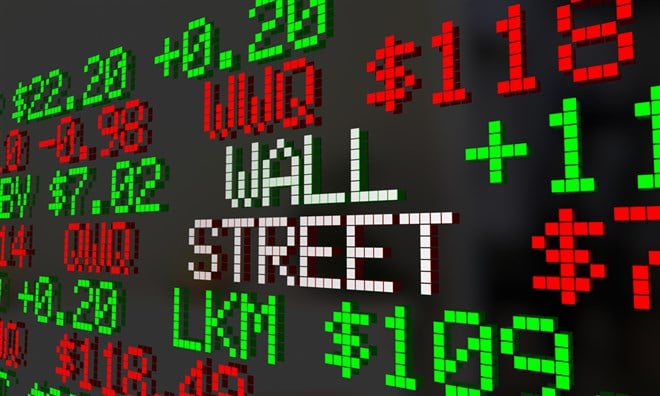
Like recalibrating a scale, sell-side analysts are constantly adjusting the price targets within their stock coverage universe. As new information becomes available about a particular company, analysts tweak their valuation models to arrive at different price targets. The adjustments can include a different growth rate assumption, higher expenses, or any number of other data points.
When Wall Street raises price targets it means they are becoming more bullish. Conversely, lowered price targets are considered a bearish move.
Taking the bullish case, when multiple analysts boost price targets on a given company, it can signal to the market that the stock is undervalued or has better growth prospects than previously thought. Investors can use this information as part of their due diligence if not as the primary basis for a buy decision.
Here are three examples of stocks that received multiple target price hikes on Monday.
How Did Analysts React to Goldman Sachs’ Earnings Report?
On Friday, The Goldman Sachs Group (NYSE: GS) reported third-quarter earnings that exceeded consensus expectations by a wide margin. Revenue of $15.2 billion and earnings per share (EPS) of $14.93 far outpaced the Street’s forecasts of $11.5 billion and $12.34, respectively. The beat was driven by strong investment banking revenue along with rising global equity markets.
Analysts had the weekend to digest Goldman Sachs's latest results and outlook. They returned on Monday with an overwhelmingly bullish tone. Five firms raised their price targets on the financial powerhouse. Oppenheimer, Credit Suisse Group, BMO Capital Markets, Barclays, and Piper Sandler all felt compelled to boost the stock’s upside and reiterate their ‘outperform’ or ‘overweight’ ratings.
In some cases, the increases were large and in others they were more modest. Oppenheimer stretched its price target from $520 to $576. Barclays raised their target from $437 to $483.
Following the strong quarterly report and analyst actions, Goldman Sachs stock has climbed back above the $400 level. With momentum on its side heading into the fourth quarter, fresh record highs may not be far away.
Does J.B. Hunt Transportation Stock Have More Upside?
J.B. Hunt Transportation Services (NASDAQ: JBHT) has received a wave of support from sell-side firms in the wake of its third-quarter earnings release. After posting better than expected revenue growth of 27% analysts took notice.
Six firms raised their price targets on Monday with most expecting similarly strong growth down the road for the transportation and logistics company. The revised targets range from $180 to $216.
Two of the target prices, BMO Capital Markets’ $180 and Cowen’s $192, suggest little upside from current levels, if not downside. These analysts have taken more cautious stances on the stock. Although they raised their price targets in recognition of the better-than-expected quarter, they maintained their ‘market perform’, or ‘hold’ ratings.
The rest of the price target raisers struck a bullish tone. Wells Fargo lauded management’s ability to execute despite the ongoing supply chain challenges facing the industry. It currently has the highest price target on J.B. Hunt at $216. Whether the stock can reach that target will largely depend on supply chain developments especially as they relate to J.B. Hunt’s key intermodal business which accounts for roughly half of total revenue.
Why Did Analysts Raise Their Target Prices for Enviva Partners?
A pair of analysts offered bullish commentary on Enviva Partners (NYSE: EVA) following the company’s business update. The wood pellets producer announced a plan to change its organizational structure from a master limited partnership to a corporation. It also revealed a transaction that will lower future investment costs and extend its project backlog to $21 billion as it tries to keep up with global demand for its eco-friendly products.
Barclays liked that they heard from Enviva management. It raised its target price from $67 to $80 asserting that shareholders have “pure upside”. The revised target became the highest one on the Street and points to 22% upside. RBC Capital also raised its Enviva price target to $75.
It’ll be interesting to see if the other analysts adjust their Enviva valuation models in light of the major structural shifts. The mere fact that Enviva will become a corporation could attract fresh interest from investors that prefer to avoid limited partnership stocks for their more complicated tax reporting requirements.
Enviva shares have rallied to new all-time highs since the press release and subsequent target price increases. Trading volume has been well above average which suggests there is suddenly a lot of interest in the company—and that its stock may keep trending towards analysts’ refreshed target prices.
Companies in This Article: